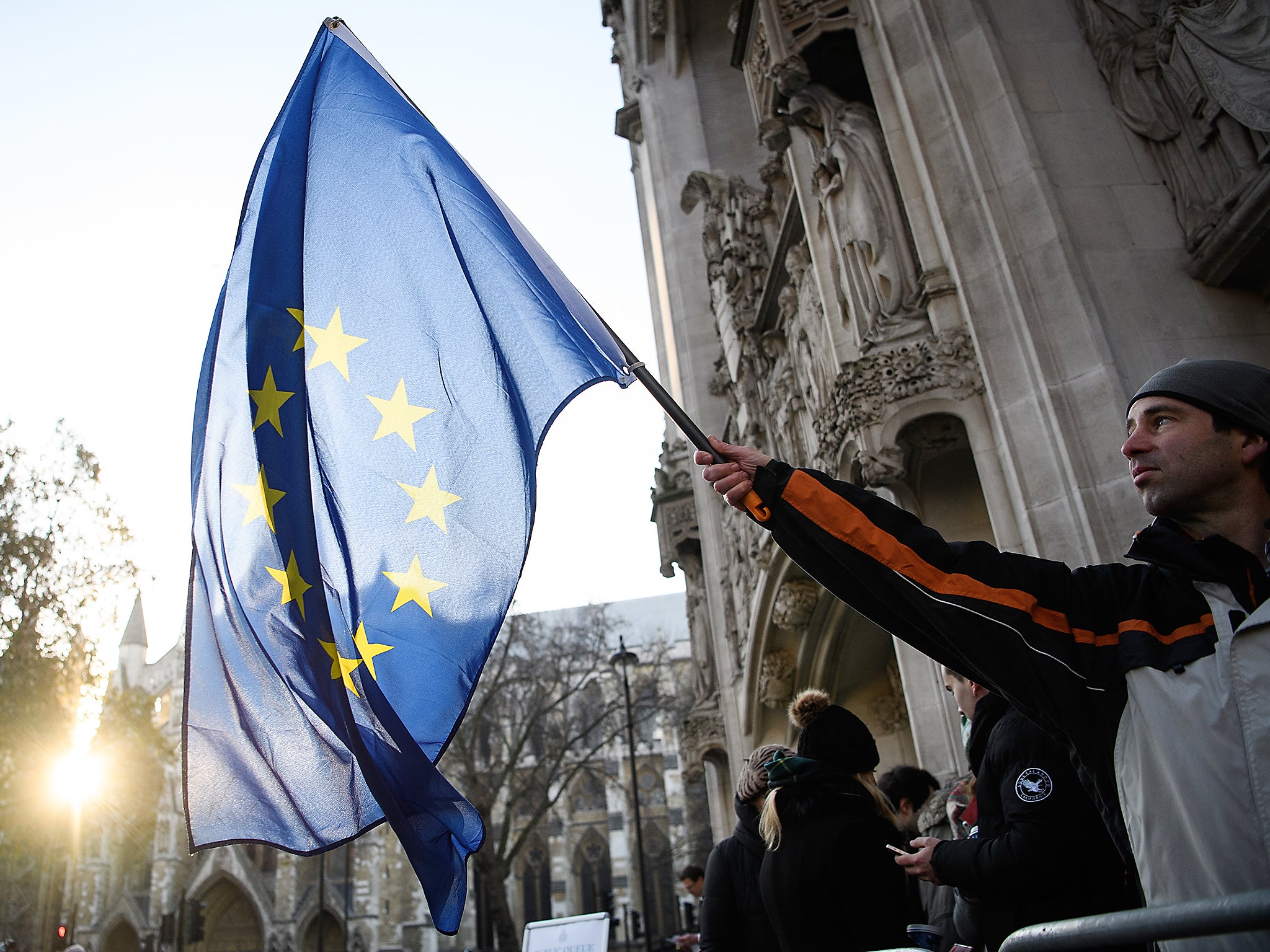The next test for this Government is its commitment to its own citizens, and to Europe's best ideas
We are discovering that we may need to recreate the architecture of the EU if we are to remain a stable, profitable and green nation after Brexit

The devil, as they say, is in the detail. That must mean that Brexit will be the most diabolical exercise the British state has been engaged in since the end of the witch trials.
Attention on Brexit is now focusing around two particular areas where implementation of apparently straightforward principles throws up some unforeseen and difficult dilemmas. Worried British citizens living in Spain – there are some 600,000 of them – have launched a campaign to win citizenship rights for all UK citizens living in the European Union. The rules surrounding voting and other matters determined by citizenship are messy: some nations permit the British expatriates to participate while others do not. The “Choose Freedom” campaign, being run by the wittily named “Bremain In Spain” group, gets to a serious point: how the UK and the EU will deign to treat each other’s peoples (whatever their citizenship) post-Brexit.
As with most things associated with Britain’s exit from the European Union, this one is not properly thought through. The Prime Minister fairly states that the European Commission refuses to engage on the issue until the UK has formally triggered its Article 50 procedure.
This is true – but it gives the impression that Theresa May wishes to keep the many Poles, Slovaks, Germans, French, Portuguese, and others as some sort of hostages during what will no doubt become fraught negotiations. It would be perfectly possible for the Government to now issue a unilateral guarantee to those people that, whenever and however Britain leaves the EU (and there remains the possibility that the nightmare will never take place), there rights and obligations in and to the UK will remain intact. They should be offered the option of British or joint-British, other national or EU citizenship, and their right to residence and participation in civic life, in elections and use of public services guaranteed as of right.
This is for the sole reason that they deserve it. They make a valuable contribution to the economic life of the nation, and in the wider part they play in their communities. We want them, we need them and it does us nothing but good to keep them.
A pledge now, preferably linked to legislation framing their rights, would go a long way to allaying their fears and adding to the meagre supply of goodwill that exists in the Brexit debate. With all the complex and tortuous arrangements that will have to be made on everything from the definition of a pickle to the status of the Irish border, this is an “easy win” that can be prioritised now by David Davis.
Mr Davis would also profit by studying the report of the House of Lords EU Environment Committee, published today, and the case made by Green Party co-leader Caroline Lucas for protecting the environment as we leave the EU.
The EU has some of the toughest rules on pollution and environmental standards in the world, and making sure they still operate effectively is about more than copy-and-pasting the relevant rules (many thousands of them) into a Great Repeal Bill. Even with British agencies substituted for European ones, there will be gaps in setting standards, in monitoring them and encoding them if and when the UK leaves the EU.
There is a substantial body of expertise and experience in the European Environment Agency, for example, which we risk losing under a hard Brexit. Even the most Eurosceptic critic would concede that issues such as fishing stocks, acid rain, climate change and clean beaches are cross-border, transcontinental matters that demand international cooperation. The agency is part of the EU, but has member states from outside the EU, such as Norway and Iceland, and does its valuable work quietly and efficiently. It is difficult to imagine Whitehall being able to replicate its abilities, and indeed it would be foolish to attempt to do so.
As in so many areas, we are discovering that if the EU didn’t exist it would be necessary to invent it.

Join our commenting forum
Join thought-provoking conversations, follow other Independent readers and see their replies